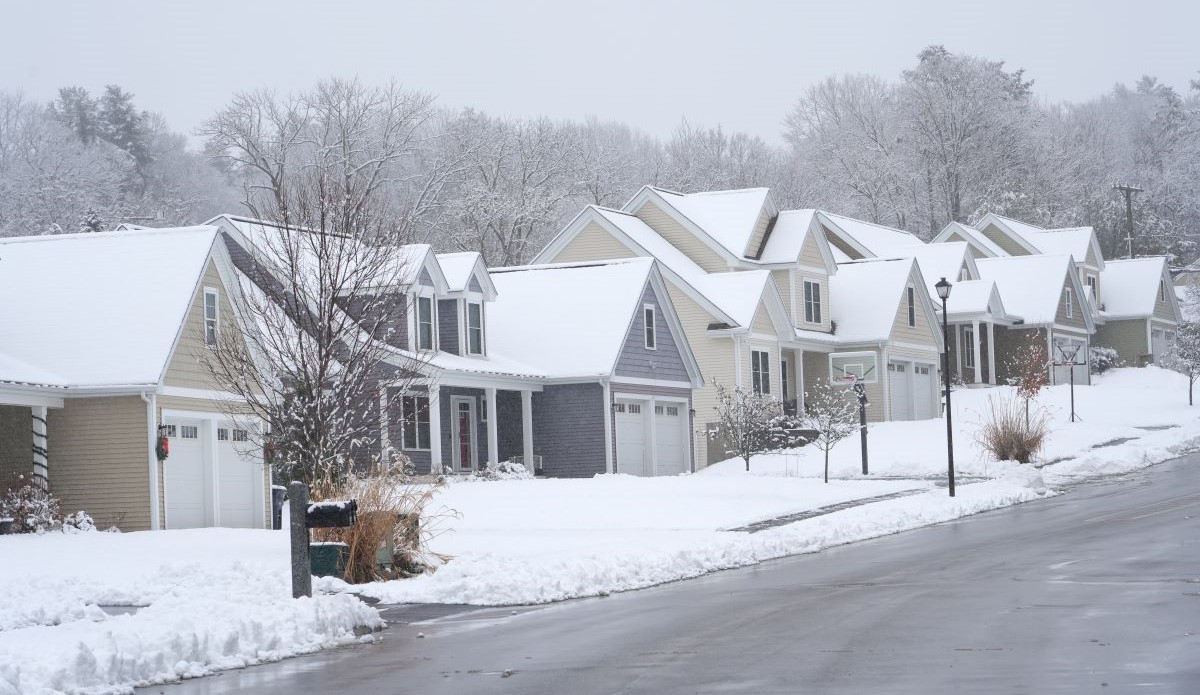
Federal Reserve Chairman Jerome Powell played the Grinch last week for the housing market, sending mortgage rates higher after his remarks at the Fed presser on Wednesday. Despite this, we had positive data on existing home sales, purchase applications, and our weekly pending contract figures. Total active listings are experiencing their traditional seasonal decline, but with less than two weeks left in the year, it’s evident that there are ready homebuyers in America. However, we need lower mortgage rates to grow sales in a bigger fashion in 2025.
Purchase application data
Purchase application data rose 1% weekly and is up 6% year over year, even with a higher bar to work from. In the last two years, we have seen an increase in purchase apps in November and December, both of which came when mortgage rates fell. However, this year, mortgage rates rose during this timeframe. I believe the seasonal demand in purchase apps is now happening in November and December, which also explains the stronger data this year and the last few years.
Purchase apps in the last 10 weeks:
The last few weeks have shown a positive year-over-year growth trend, as illustrated in the chart below. I typically disregard the last two weeks of the year, and the Mortgage Bankers Association won’t report those figures until the new year. Therefore, I’d like to conclude that 2024 ended the year slightly positively.
When mortgage rates were running higher earlier in the year (between 6.75%-7.50%), this is what the purchase application data looked like:
- 14 negative prints
- 2 flat prints
- 2 positive prints
When mortgage rates started falling in mid-June, here’s what purchase applications looked like:
- 12 positive prints
- 5 negative prints
- 1 flat print
With the data above on how the market reacted to higher mortgage rates, I can understand some people’s surprise with our Housing Market Tracker data. The last existing home sales report beat to the upside, too; which I wrote about here.
Weekly pending sales
The latest weekly pending contract data from Altos Research offers an exciting glimpse into the real-time dynamics of housing demand. While it’s common to see a seasonal dip in volume at this time of year, there’s a silver lining: we’ve been observing solid year-over-year growth when comparing our data to 2022 and 2023.
This positive trend suggests that despite the typical slowdowns, the housing market is showing some promising resilience as we head toward the end of the year! This is the weekly pending sales for last week over the previous few years:
- 2024: 293,555
- 2023: 267,033
- 2022: 263,937
10-year yield and mortgage rates
My 2024 forecast included:
- A range for mortgage rates between 7.25%-5.75%
- A range for the 10-year yield between 4.25%-3.21%
Last week was tumultuous for mortgage rates. Chairman Powell’s statements created a ripple effect in the market. The 10-year yield shot up after the Fed press release and then kept going higher as Grinch Powell talked more.
However, after the inflation report came in softer, bond yields fell, and mortgage rates dropped as well. Despite this, it was still a challenging week for both rates and the 10-year yield.
Mortgage spreads
The unsung hero of the housing market in 2024 has been the improvement in mortgage spreads. What was a concerning issue last year has turned into a positive story this year. If mortgage spreads had not improved in 2024, our discussions about housing would be quite different today — especially considering the events of last week.
Mortgage rates would be near 8% if we had experienced the peak negative spreads of 2023. On the other hand, if mortgage spreads were at normal levels, we could expect mortgage rates to be approximately 0.72% to 0.82% lower. Last week demonstrated that even with rising rates, the housing market has fared much better this year than last year, thanks to more favorable spreads.






